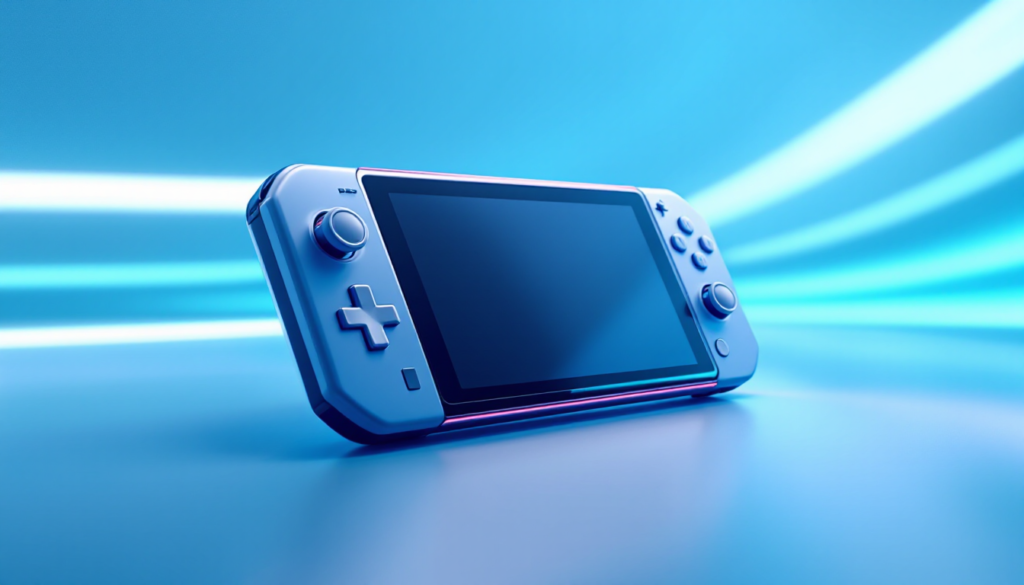Sony is reportedly working on a portable gaming console competing with Nintendo and Microsoft in the handheld gaming market. This new device will let gamers play PlayStation 5 games natively regardless of location, unlike the recently launched PlayStation Portal that relies on remote play. However, insiders say that the device is still years away’ from release. It will give Sony the chance to take the idea in a completely different direction. Particularly as it assumes that the project may be scrapped altogether.
This revelation echoes Microsoft, whose CEO recently confirmed an Xbox handheld is in the early stages of development as well. Meanwhile, Nintendo remains a dominant presence in this market and is expected to ship a next-generation Switch, perhaps as soon as next year.

The Rise of Portable Gaming
In recent years, the handheld gaming market revolutionized. Valve’s Steam Deck and its OLED follow-on have opened the doors for new contenders such as Asus’s ROG Ally, Lenovo’s Legion Go, Logitech, and MSI. These opportunities were used by such companies to lure gamers who prefer playing on smartphones or tablets rather than through traditional consoles or PCs.
On the other hand, Sony and Microsoft have an enormous advantage (they have much larger game libraries). This allows both companies to present independent developers and the so-called major studios a wealth of titles to attract more customers to their platforms.
Accomplishing that on a portable console will demand some freakishly advanced hardware, and yet more, highly customized software. Having gone so far explains why it is in its initial design phase with many more details to decide.
Sony’s Portable Legacy
Portable gaming is no stranger to Sony. Earlier company ventures such as the PlayStation Portable (PSP), PSP Go, and PS Vita were ahead of their time. Yet these devices ended a long time ago, and the company has been absent from the handheld space for years.
Last year Sony made a tentative return to this market with the PlayStation Portal. The Portal was supposed to operate off of its own Steam but ended up as a janky little remote-play gadget that streamed PS5 games over WiFi. For a true standalone console, however, this approach becomes less compelling, as it could usher an entirely new audience within the arms of a once niche developer if not truly opening Sony up entirely for business.
The Challenge Ahead
Building a portable gaming console is not a quick thing. Sony will have to do some heavy lifting to compete against Nintendo’s proven track record and Microsoft’s burgeoning plans. The device needs to do this all while balancing the tradeoff between performance and portability, to give to the current fans and lure in new players.
Sony needs to tackle hardware rivals as well as the upswing in cloud gaming. Although device-agnostic services such as Nvidia’s GeForce Now and Microsoft’s Xbox Cloud Gaming have gained some traction, they provide a smooth, high-quality gaming experience to various platforms.
In fact, a dedicated Sony handheld console could actually be uniquely advantageous. This means that Sony could easily create an innovative device differentiated from the growing crowd thanks to its native gameplay and library of exclusive titles.

Sony’s Strategic Gamble
If Sony takes this project forward, it will be back in the league of companies shaping the future of portable gaming. However, failing to act could leave Sony as the only major gaming platform without a handheld.
The stakes are high, as the industry evolves. The new handheld device would not only evolve on Sony’s legacy but also put the company in a position to play catch up with cloud gaming, and hybrid consoles. The gaming community is waiting for how Sony’s plans come together for now. With years to go before any official announcement, one thing remains clear: Sony’s next move in the handheld space could set out its role in the gaming industry.





